Amplitude Vs Mixpanel: No Fluff Guide
 Isioma Ogwuda
Isioma Ogwuda
Anyone looking for a Google Analytics alternative must have, at one point or another, used or stumbled on either of these two powerhouses.
To help you make the right choice, I'll compare each tool based on the following:
Price
Capabilities and
Collaboration
Is Amplitude for you?
Here's the gist:
Amplitude is best for large businesses. With Amplitude, you can create detailed customer personas, review user journeys, and analyze funnels.
But there's a catch. It requires a large amount of data to be effective. If you're just starting, you might want to hold off on Amplitude until you have a more extensive user base.
Is Mixpanel for you?
Mixpanel is an excellent choice for SaaS companies with mobile apps looking for user analytics, marketing tools, and CRM in one place. Companies can track user behavior, send targeted push notifications, and manage customer relationships in one place.
Mixpanel Review

Mixpanel's intuitive interface complements its powerful analytics features. Product teams can get in-depth answers to why users convert, how to prioritize features, and what keeps customers coming back. Mixpanel makes it easy to see top user flows, build funnels, create cohorts, and much more. There is no need to create SQL queries manually.
A few of Mixpanel's key advantages include:
- Group Analytics:
Group Analytics from Mixpanel lets teams calculate company- or account-level metrics like:
Active Usage
Product Adoption and
Retention
These metrics can help teams understand customers' habits to upsell and reduce attrition.
- Scalable Infrastructure:
Product managers can perform massive, pre-compute-free analyses of raw user event stream data. The platform can process trillions of events annually and return high-volume queries in seconds.
- Security and Privacy:
Mixpanel protects customer data during transmission and storage with international security and privacy standards. The platform manages cybersecurity risks with advanced encryption and role-based access controls.
Amplitude Review
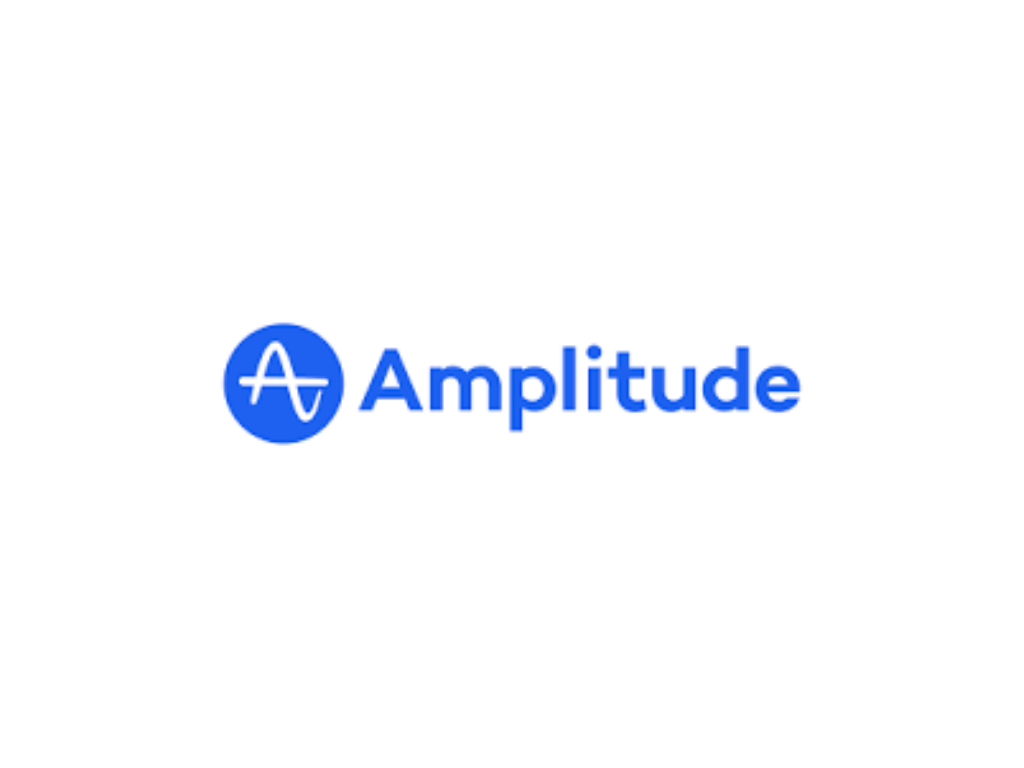
Amplitude gives teams the tools to make educated decisions based on customer behavior and features.
Product owners can use Amplitude to understand how to increase customer retention, expand customer lifetime value, comprehend conversions, and democratize data.
Benefits of Amplitude:
- Access to Data Across Departments:
Amplitude's widespread adoption is beneficial because it facilitates data sharing across teams. Decision speed and quality improve when groups with shared data have more information.
- Breadth and Depth of Insights:
With a 99.9% uptime, Amplitude can analyze billions of events in less than a second. This way, users can address both intricate and straightforward inquiries. It also provides a comprehensive 360-degree view of user journeys across diverse channels, devices, and products.
Mixpanel vs. Amplitude: Similarities and Differences
While they share some similarities, they also have significant differences.
Here's how they differ:
Mixpanel vs Amplitude: Workflow and Reporting Customizations
With Amplitude's Workflow, you get a personalized touch right away. The Analytics Workflow puts dashboard customization first. Mixpanel takes a faster approach, offering basic dashboards and then presenting options.
Here is how the workflow for Mixpanel looks:
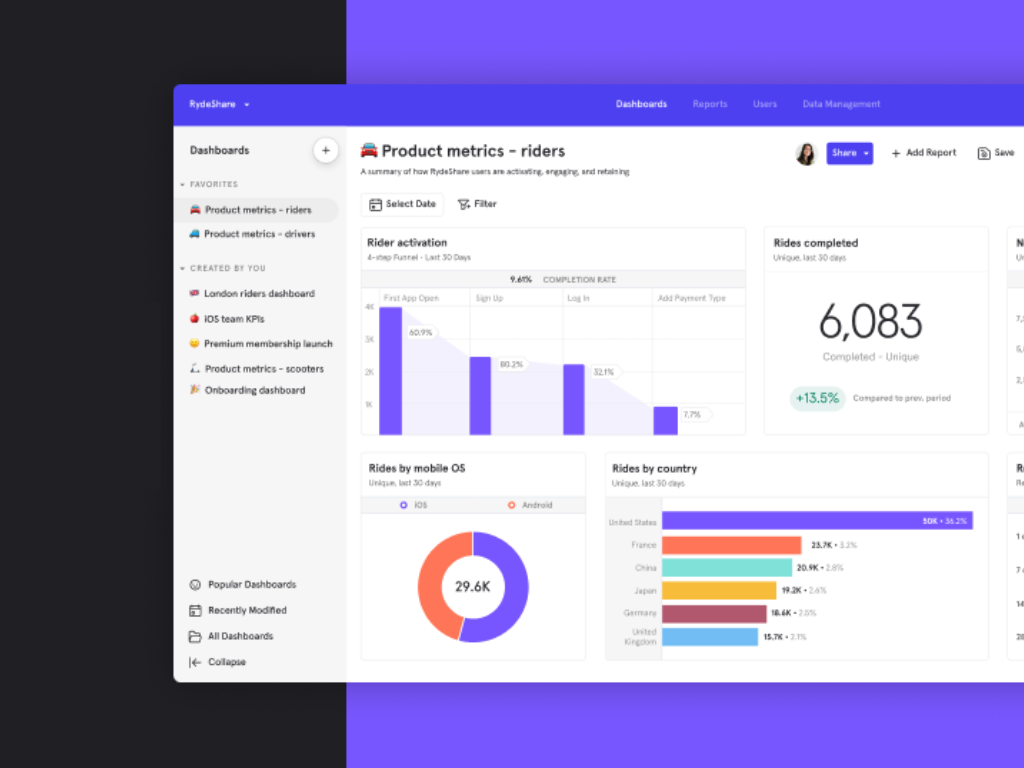
And here's the one for Amplitude
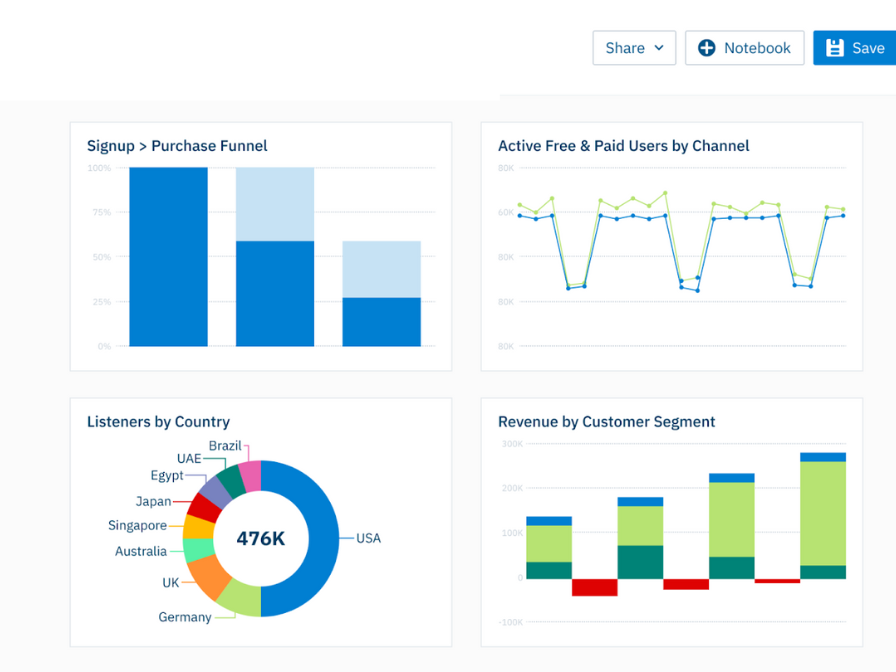
Mixpanel vs Amplitude: Integrating Data
Mixpanel is an effective tool for integrating data, especially for sending data to external platforms like Salesforce. It does this using webhooks.
Using Mixpanel's Marketing Automation suite, you can interact with user data via conditional messaging and multi-faceted optimization tests.
This extended functionality positions Mixpanel as a CRM companion and a standalone tool.
Amplitude, however, is purely analytics-focused. Users who like to analyze data will love its dashboard-focused workflow.
Unlike Mixpanel, users cannot send alert notifications or SMS messages from Amplitude. Amplitude delegated this functionality to partners such as Intercom. Amplitude users have to pay an extra fee for the feature.
Mixpanel vs Amplitude: Funnel Reports
A funnel report is an excellent tool for figuring out where users drop off in your product's journey.
Mixpanel and Amplitude let you build funnels on the fly, whether it's for checkout, onboarding, or anything else. Both platforms provide data on conversion rates at each funnel step.
This is what a Mixpanel Funnel Report looks like:
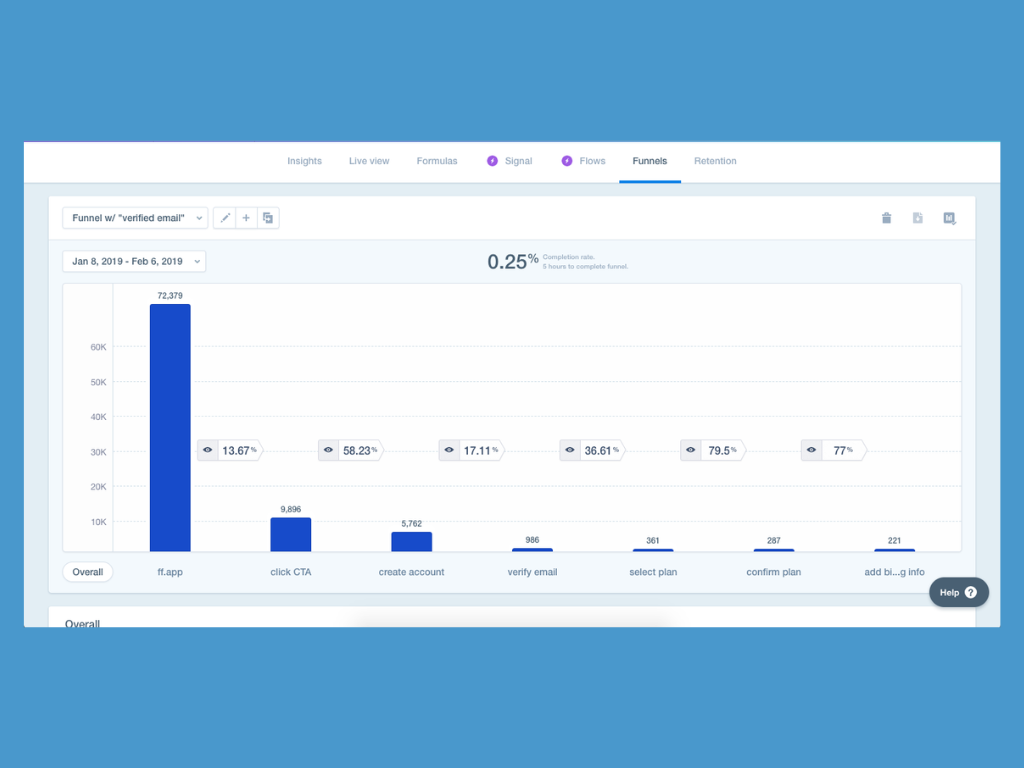
Amplitude Funnel Dashboard:
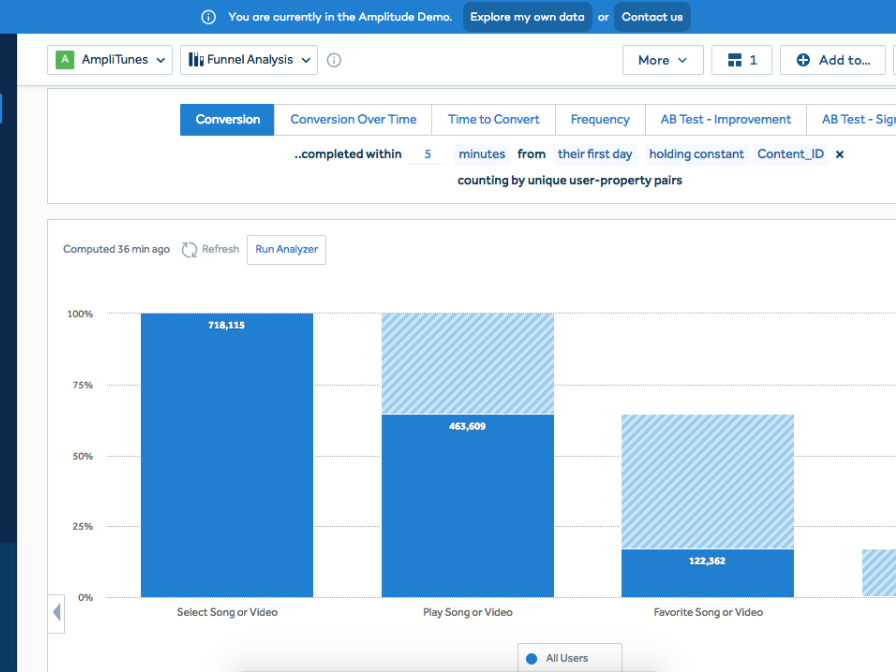
You can filter steps to include only certain users, such as Android or iOS.
Amplitude has an edge, though. You can create ordered and unordered funnels on Amplitude.
Ordered Funnels is like following a recipe. You've to go through the steps in a specific order. But Unordered Funnels are more like buffets. You can choose the steps in any order.
Mixpanel vs Amplitude: Insight Reports
Both tools help you split and dice data based on essential metrics like user details or events. The goal? To uncover trends and get to the bottom of basic questions.
Say you want to see what pricing plans people choose when they become paid subscribers. An event that tracks when a user becomes a subscriber and splices it by pricing makes sense.
This is how the above report looks in Amplitude:
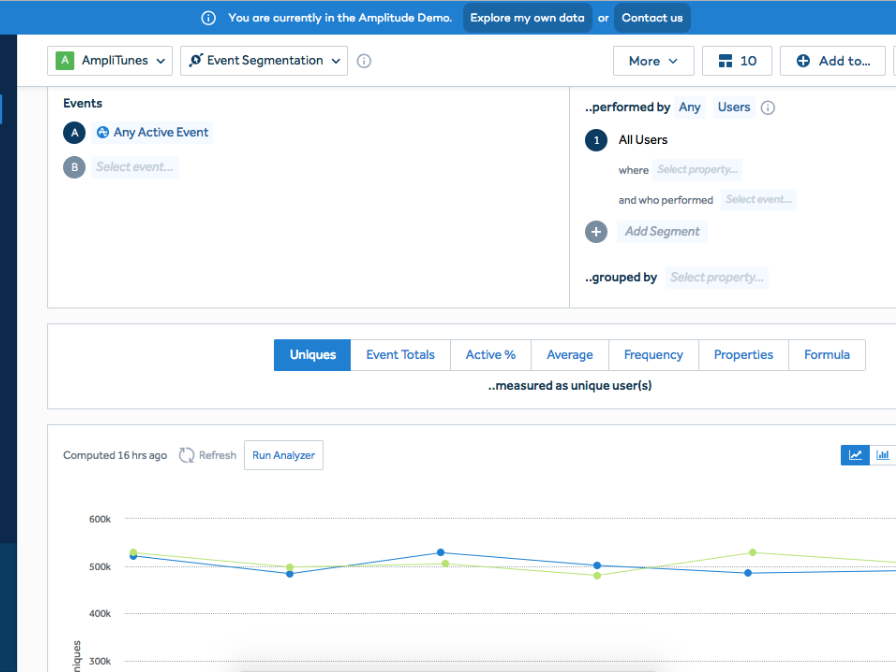
On Mixpanel, the same report looks like this:
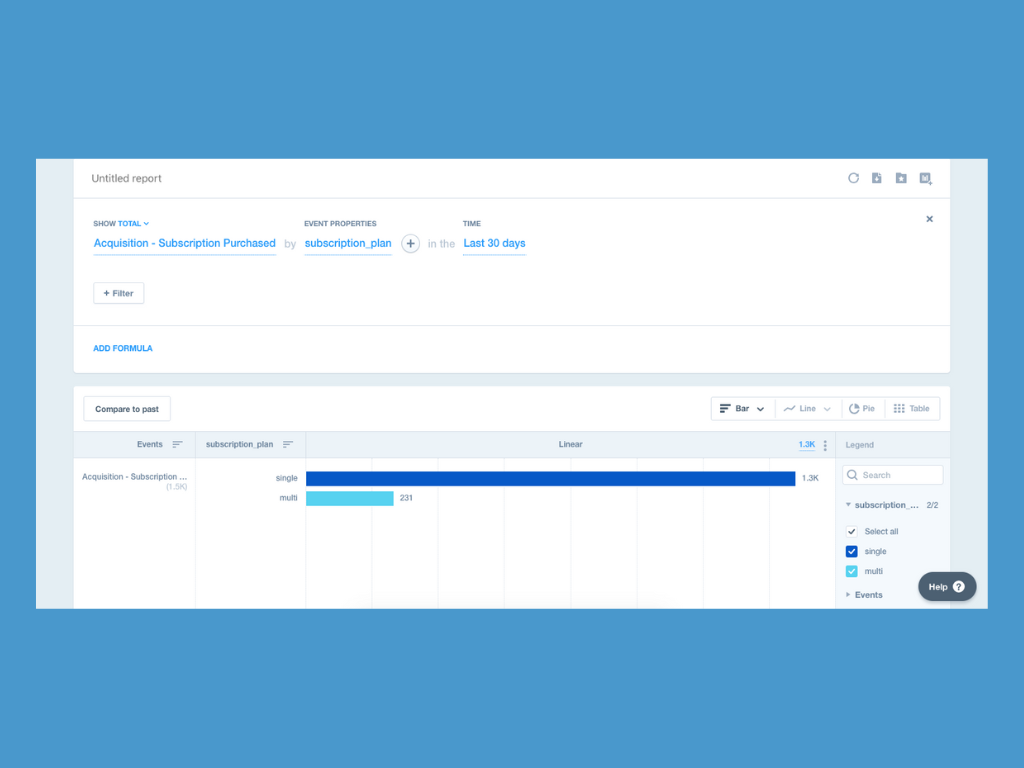
Each platform displays data in various ways, including charts, tables, and bars. And refined through filters like Cohorts, User Attributes, and other characteristics.
Both Amplitude and Mixpanel provide comparable functionalities within this report.
But Amplitude makes it easier to play around with data. Things like crunching numbers to find averages or totals? Piece of cake on Amplitude.
Mixpanel vs Amplitude: Retention Reports
Retention Reports help product managers group users into different sets, known as cohorts.
Now, let's take a peek at how Mixpanel and Amplitude present their Retention Reports:
Mixpanel's Retention Reports:
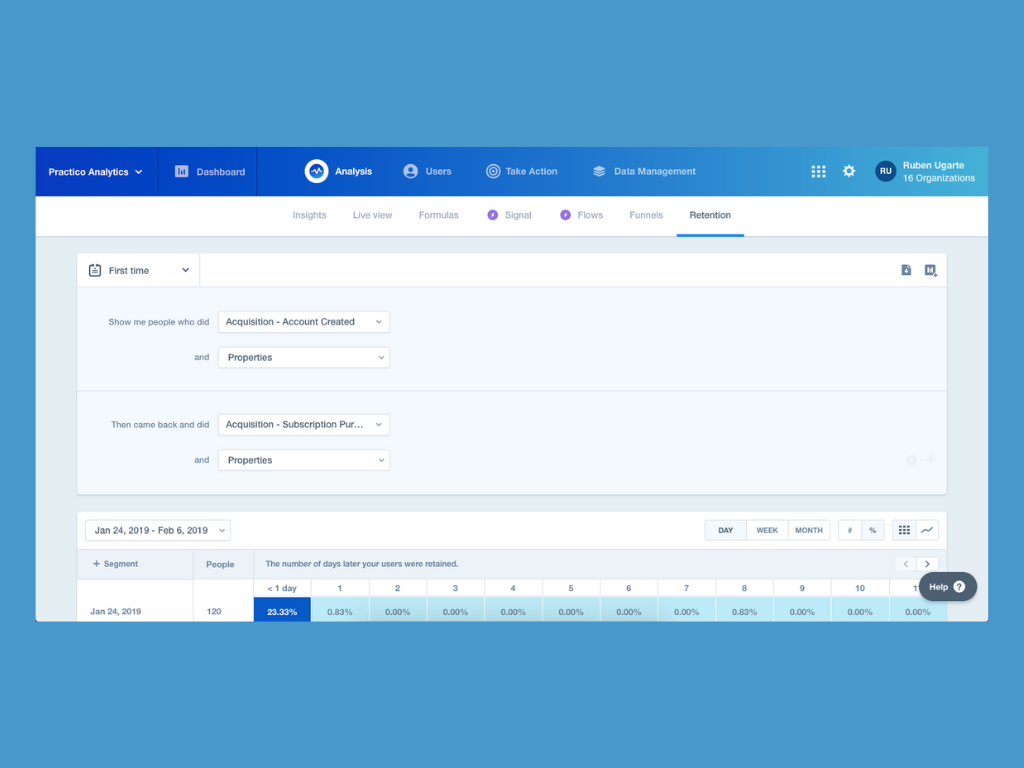
Amplitude’s Retention Report is pretty similar, but with some cool tweaks.
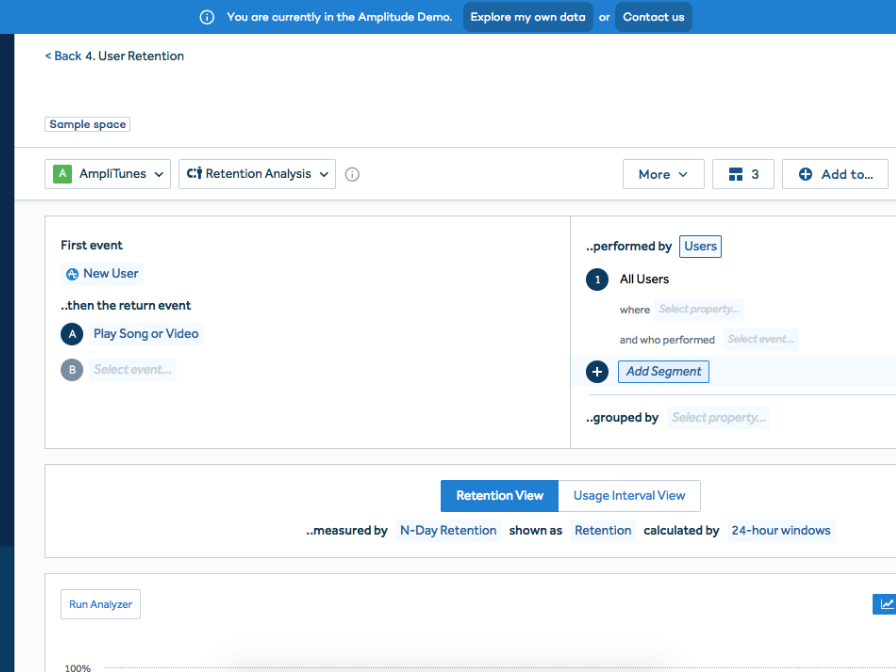
When you compare Mixpanel and Amplitude Retention Reports, you'll notice both tools use Cohort Analysis to group users. Amplitude includes extra features like "weighted average" and Return On or After metrics for accuracy.
Mixpanel vs Amplitude: A/B Testing Abilities
Both tools are excellent for experimenting and testing. But Mixpanel has an advantage. Mixpanel Users can carry out A/B Testing on their mobile apps. It's perfect for tracking mobile data. Amplitude is yet to add this feature.
Mixpanel vs Amplitude: Advanced Reporting Tools
Using predictive models, Mixpanel identifies users most likely to convert. With this functionality, you can identify areas where users may encounter problems.
Amplitude groups similar users into behavioral cohorts using Personas. Using Personas, you can mine data about how your users interact with your product. It guides you through creating user personas tailored to your product so you can retain and engage users.
Mixpanel vs Amplitude: Data Accuracy
Amplitude and Mixpanel both offer features to ensure data integrity and accuracy. Amplitude refers to this functionality as Taxonomy and on Mixpanel, it is "Lexicon," and this is how it appears:
You can describe events, rename them for user comprehension, and filter out inaccurate or irrelevant data on either platform.
The two tools have only minor differences, so it's hard to declare a winner.
Pricing
Mixpanel is cheaper than Amplitude, especially for small user numbers (10,000 or less).
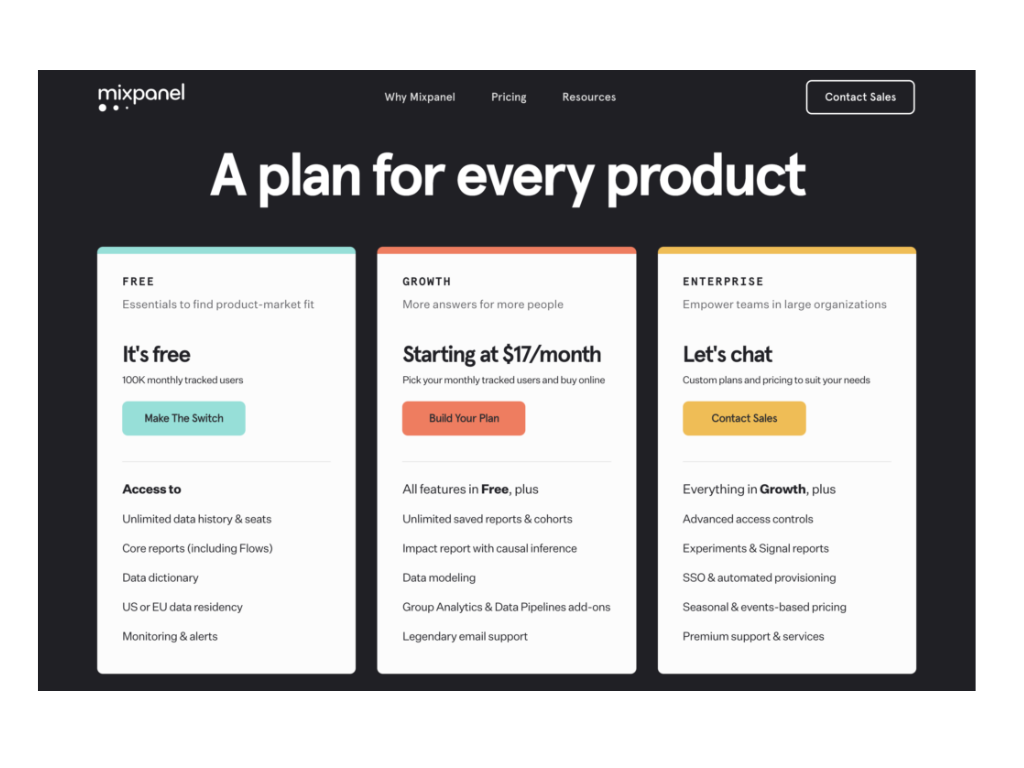
The most affordable plan starts at $200 per month for 10,000 users. Plans for Enterprise start at about $3,000 per year. You can also create a customized plan based on your specific needs.
Mixpanel's pricing depends on how much data you collect.
While Amplitude is feature-based. Amplitude might be better if you have a lot of user data and need advanced features. Their Enterprise plan is accessible from $5000 per month, alongside a Growth plan starting at $1500 per month.
Amplitude's pricing plan:
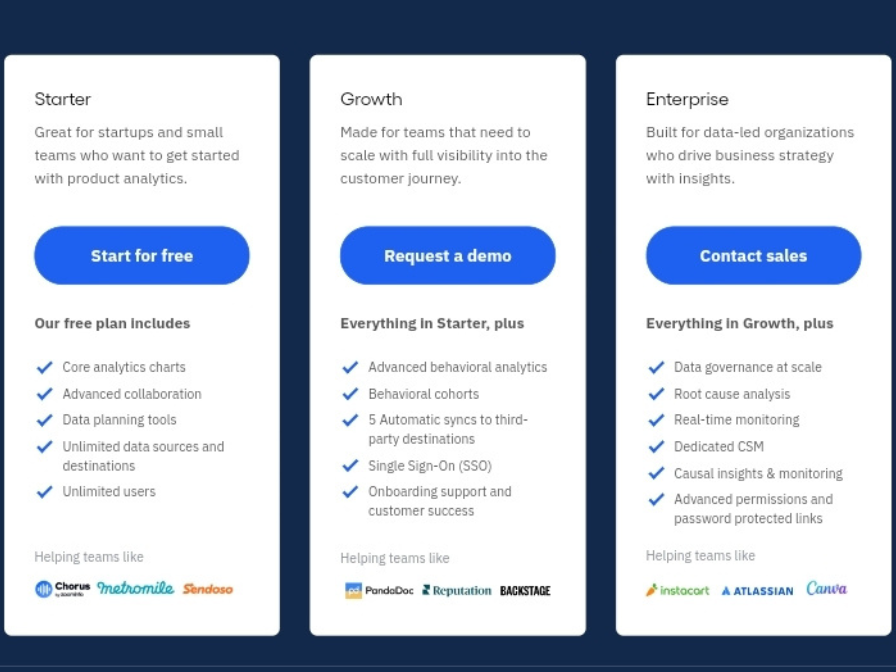
Verdict
Amplitude and Mixpanel have good web product ratings from users and favorable reviews. Both have an above-four-star rating on Gartner and a profile of top brands as customers.
Here's what I recommend:
Choose Amplitude if you have an enterprise-level marketing strategy with thousands of users. With its robust data analysis, you'll get granular insights into your user base, funnels, and user journey. You can track how new features impact signups or purchases at an enterprise scale and how large user personas interact with your onboarding funnel. That's a value you won't get with other analytics tools.
Also, Amplitude is a better choice if you're on a limited budget. Amplitude's free core data analysis and reporting features, unlimited data retention, and 10 million actions per month will take you far.
You can get a decent insight into funnels, group behaviors, and retention with an average of 5,000 events per user. Some small businesses run on Amplitude for free. It's a steal.
But if you are looking for the best analytics platform for mobile apps, Mixpanel is your go-to.
One of its top features is sending targeted text, email, push, or in-app messages. With Amplitude, you'll need an integration and another subscription fee.
Subscribe to my newsletter
Read articles from Isioma Ogwuda directly inside your inbox. Subscribe to the newsletter, and don't miss out.
Written by
